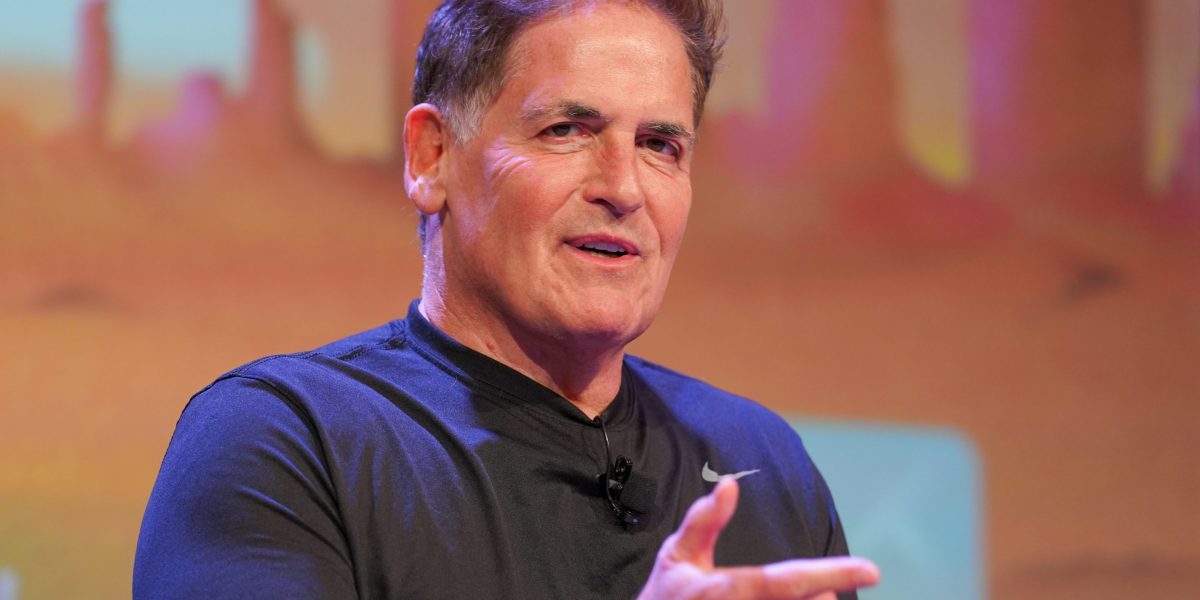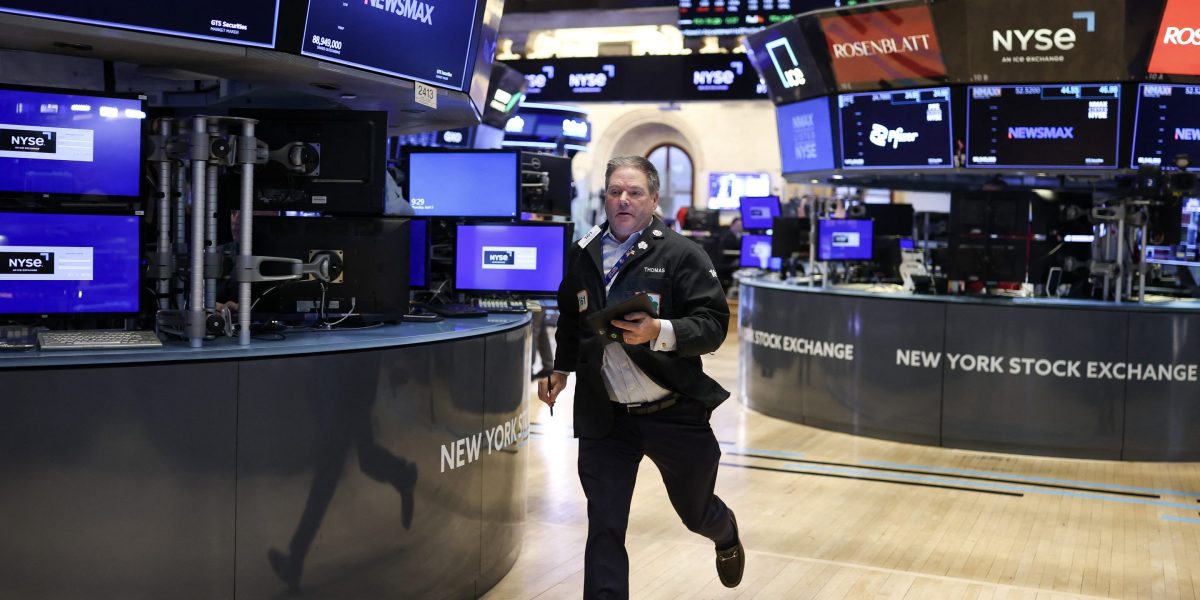- The stock market continued its collapse Friday as the Nasdaq fell into a bear market amid the fallout from President Donald Trump’s hefty “Liberation Day” tariffs. China matched the U.S. by imposing 34% retaliatory tariffs on U.S. imports. Amid the market turmoil, Trump called on Jerome Powell to cut interest rates, but the Fed chief dampened hopes for an imminent cut.
The stock market continued to plummet Friday following the worst single-day sell off since 2020 on Thursday after President Donald Trump’s “Liberation Day” tariffs sparked fear of a global trade war that could lead the U.S. into a recession.
The Dow Jones Industrial Average collapsed 5.5%, losing 2,231 points, after a 1,679.39-point slide Thursday.
The S&P 500 sank 6% Friday, and the Nasdaq crashed 5.8%, sending the tech-heavy index more than 20% below its recent high and putting it in bear market territory.
On Thursday night, JPMorgan raised the odds of recession from 40% to 60% following Trump’s latest tariffs.
As investors seek security of bonds, the 10-year Treasury yield briefly slipped below 4% Friday, close to its lowest levels since September, before climbing to 4.015%.
Early Friday, Beijing announced it will retaliate against Trump’s 34% tariffs on imports from China by imposing matching levies on U.S. imports. Additionally, China added several companies to its “unreliable entities list,” which addresses foreign entities that have violated market rules or contractual obligations. China also opened an antitrust investigation into DuPont, causing its shares to slip 12%.
Trump has stood firm on his aggressive import duties, saying that his “policies will never change,” in a Truth Social post.
In another post on Truth Social, Trump demanded Federal Reserve Chair Jerome Powell lower interest rates and “stop playing politics.”
But Powell warned Friday that sweeping tariffs could push inflation higher, chilling hopes that interest rates will fall soon.
“Higher tariffs will be working their way through the economy and are likely to raise inflation in coming quarters,” he said at a business journalism conference in Washington, D.C.
Trump’s tariffs were “significantly larger than expected,” Powell added. While he noted that the economy is currently healthy, citing a positive jobs report released on Friday, he said that uncertainty from Trump’s hefty import duties is making consumers and businesses nervous, forcing the Fed into a holding period.
“We are well positioned to wait for greater clarity before considering any adjustments to our policy stance,” Powell said. “It is too soon to say what will be the appropriate path for monetary policy.”
This story was originally featured on Fortune.com
Source link

 Entertainment8 years ago
Entertainment8 years ago
 Politics8 years ago
Politics8 years ago
 Entertainment8 years ago
Entertainment8 years ago
 Entertainment8 years ago
Entertainment8 years ago
 Tech8 years ago
Tech8 years ago
 Tech8 years ago
Tech8 years ago
 Tech8 years ago
Tech8 years ago
 Politics8 years ago
Politics8 years ago







